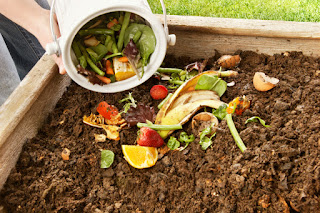Composting
is an environmentally friendly technique and therefore we all must follow it. The
waste management company in Mumbai will always help you with composting. However,
if you are making a compost pile for the first time, then it is likely that you
will commit a lot of mistakes.
But
if you already learn about those common mistakes that you may commit while
composting, then eventually it will surely become easy for you to make
qualitative compost.
So,
here is a guide explaining common composting mistakes & its solutions:
You have added the wrong stuff into the
heap
Every time you make a compost pile you have to make sure to add all the ingredients
precisely. So, to give you a brief idea, you could add any kind of wet scraps
into it except infected plants, charcoal ash, and oil.
This is because adding these things ruins the quality of the compost and causes
odor problems as well.
So,
what can you add to the heap? You can add kitchen residues, gardening scraps,
bakery scraps, etc into the pile.
You have not added a variety of scraps
If
you add only the same kind of scraps into the heap, then there will not be a
variety of nutrients in the end product. The green scraps like cooked food
leftovers, bakery scraps, fruit peels, etc are high in nitrogen whereas the
brown scrap like twigs, grass clippings, small branches, dead flowers, etc are
high in carbon. Thus, when
you add enough diversity containing proportionate quantities of nitrogen &
carbon, it helps you produce effective
compost in real terms. Also, multi-nutrient rich manure always acts best for
plant growth.
You water the pile too much
Moisture
is absolutely essential to produce good quality compost. As it is needed for
the growth of beneficial bacterias and to attract necessary insects as well.
However, if you water the pile too much then it can make your heap soggy. Thus,
it later degrades the final compost quality. Also, when you pour appropriate
quantities of water, it helps to regulate the temperature of the heap. So, the
next time you go for composting, you should water the heap on a moderate basis.
You have chopped down everything into
micro pieces
Many
times, you may think that the more you will chop organic matters into smaller
pieces, the more beneficial it will be for the pile. However, this is not the
right thing to do. Because if you cut all the wet scraps into really tiny
pieces, then eventually it will make your pile too wet & muddy. Also, the
proper air supply is necessary for healthy decomposition as the microorganisms
break down the scraps in the presence of oxygen. So, too many tiny pieces can
block the air from flowing away smoothly. That is why you should never over
chop the scraps.
You do not cover up the heap
It is very important to finely cover up the pile. Doing so will keep your heap
protected from creatures like rodents, insects, frogs, etc. Also, it will
retain the moisture inside the pile. As a consequence, your pile will not get
dried off due to heat exhaustion. As well as, a covering sheet also helps to
hold heat inside the pile which thereafter benefits bacterias to work more
efficiently. Consequently, it speeds up the composting process and promotes
healthy compost generation.
Conclusion:
Whenever
you carry out composting for the first time, there are always a few chances of
doing things in the wrong way. However, it is all about trial & error. When
you will compost the wet wastes more often, then you will eventually learn to
do it.
Nevertheless,
you can also install a composting machine-like Goldust at your place. It
is a robust machine manufactured by LAHS Eco Engineering - a waste management
company.
This
equipment converts any kind of wet scraps into rich manure within fewer hours.
Moreover, the process is completely odorless, noiseless, and maintenance-free.
As well as, this equipment can easily handle large scrap volumes and convert
them into healthy manure.
























